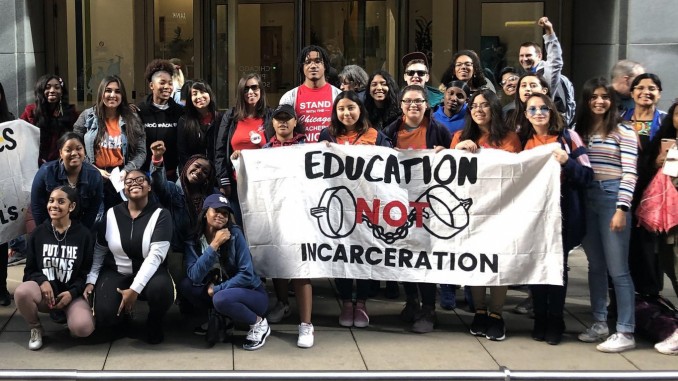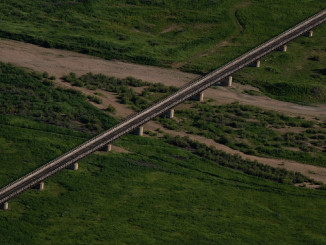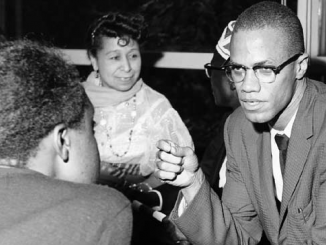
We Won’t Pay for Their Crisis
After the Democratic governor of California proposed $18 billion in budget cuts to education, a recent email from the OUSD Superintendent threatened an additional $16.5 million in budget cuts in Oakland. Back in March, well before the shelter-in-place went into effect, the School Board had already authorized $21.5 million in cuts. This mirrored the $21 million in cuts that the same School Board voted on in March 2019. With these massive cuts come more layoffs and increasingly bare classrooms.
And what about this talk of a so-called safe return to school? After slashing budgets and cutting staff, how will it be possible to keep students and staff safe? These disastrous cuts to education are by no means limited to Oakland or to California. While the Democrats and Republicans have argued about the bail-out bills in Congress, there is one thing they agree on: poor and working people should foot the bill for this crisis. As one example, the Democratic governor of Hawai’i proposed a massive 20% pay cut for all state employees, including teachers.
The scope of this crisis requires educators to think beyond our individual districts, our job classifications, and beyond the next contract. The entire education system is threatened, from pre-K to Ph.D, along with deep cuts that have been proposed to public transit, social services, the post office, and public worker pensions. (Meanwhile, charter schools, which are publicly funded but privately run, are tapping into coronavirus relief funds meant for businesses.) California’s budget deficit is over $54 billion, a mighty sum that could easily be funded by channeling the wealth of San Francisco’s 75 billionaires, wealth that is created by the labor of working people. Billionaires in the U.S. have amassed more than $565 billion since the COVID-19 pandemic hit. With millions of people hungry, jobless and facing eviction, the politicians say nothing about taxing the ultra-rich, only about slashing public services like education. Why should we accept these attacks? Let’s organize ourselves to demand a budget that protects our children and our schools!
Our Safety Depends On Us!
Right now, there is a lot of talk about opening up the economy and returning to school in the fall. With so many people that have lost their incomes, it is understandable that people want to get back to work. There are also many families who have struggled to figure out childcare while traditional school has been shut down. But is the health of teachers, staff, students and families being taken seriously in the discussions about reopening schools? After reopening their economies, nine states have seen considerably higher cases of COVID-19.
There are currently different ideas being tossed around of how school would resume in the fall, ranging from staggered schedules to hybrid models with distance learning. Anyone who has worked at the lower levels of elementary school knows that proper social distancing will likely be a fantasy rather than a reality. And how many teachers, staff and students are immunocompromised, have diabetes or high blood pressure, or live in multi-generational households? Until there is a vaccine made universally accessible to everybody, why should anyone be expected to return to physical schools?
During the pandemic, families have struggled to put food on the table and pay their bills, and many were left without laptops or wi-fi access to continue learning. At the same time, America’s billionaires got richer by $565 billion. With the enormous amount of wealth in this society, why should any families go hungry, lack health care, or face eviction and homelessness? Why shouldn’t every student be given a laptop and free internet access to make distance learning a reality?
If anything has been made crystal clear during this pandemic, it’s that we cannot afford to put our safety in the hands of those who run this society. Decisions relating to safety at school need to be made by teachers, staff, students and parents.
Brookfield Strikes Back
Last year, Francophone Charter School took over several classrooms at Howard Elementary, a public school in East Oakland. As a result, special education students at Howard lost their classroom and were sent to a book closet for reading intervention.
This year, the Oakland School Board offered Francophone the opportunity to occupy several classrooms at Brookfield Elementary. Both Howard and Brookfield serve a majority-Black student population in working-class neighborhoods, while parents at the much whiter and wealthier Francophone Charter rolled up in their BMWs, dropping off their students to sit in stolen classrooms.
This year, however, things were different. From the start, families at Howard held regular meetings to discuss the occupation of their school and the impact it was having on their children. And as soon as teachers and families at Brookfield heard that they were the next target, they began organizing their forces. Even a global pandemic couldn’t stop them! In the past six months, teachers and families at Brookfield led a digital hour of power, flooded the voicemails and email inboxes of Francophone Board members, protested the co-location at Oakland School Board meetings, spoke up and posted signs and messages during Francophone Board meetings. (“Don’t steal our school!” “Co-location is an aggression!” “Co-location is colonization!”). And they didn’t fight alone – they reached out to other schools throughout Oakland to fight the proposed co-location. Teachers and staff at several other schools showed up at these actions to stand in solidarity with Brookfield, because an injury to one is truly an injury to all.
In the end, Francophone felt the heat, and instead of stealing space from Brookfield, they decided to sign a lease at a private school. In a time period marked by systemic racism, a global pandemic, an economic collapse, and racist police brutality, the teachers and families at Brookfield and Howard have given us something to celebrate. And they’ve shown us exactly who we can depend on: not the politicians, not the district administrators, but only on ourselves.
Cops off our campuses!
Oakland is the only school district in Alameda County with its own police force. It costs the district $2.3 million a year, and inflicts incalculable trauma on students. Black students are particularly targeted. They make up just 26% of the students in Oakland schools, yet they account for 72% of the arrests by OUSD police.
In response to the murder of student Raheim Brown by an Oakland school police officer in 2011, local activists in the Black Organizing Project (BOP) began organizing and campaigning to eliminate Oakland school police and redirect the saved funds into student trauma reduction and restorative justice services. When the nationwide protests against police terror erupted in the wake of the murder of George Floyd, this campaign received a huge boost. Once again, the Oakland School Board has a chance to vote for a resolution to eliminate school police on June 24th. Many educators, families and students are stepping up to put pressure on the Board to accept this proposal.
Only a few months ago, school police were just part of the harsh reality of Oakland schools – one of the problems that seemed unfixable anytime soon, like privatization, understaffing, and budget cuts. Now, in the midst of an international protest movement, this dream to get rid of school police is within reach – a testament to the power of a social movement and long-term organizing efforts.
This struggle to eliminate school police has highlighted the question of what it really takes to provide safety for our students. School police are supposedly there to ensure safe campuses, but studies have shown that they do nothing to reduce crime or make students feel safe. Instead, they are used primarily as a cruel and racist disciplining measure against Black and Brown students. This is no different from the role police play in our society, which is to punish and control poor and working-class communities, and protect the wealth and power of the rich. Removing police from our schools is an important step towards safer campuses, but we can’t stop there. Children deserve a society that is free from poverty, racism, and all forms of oppression. They deserve health care, housing, financial security, and much more. They deserve a totally different society.




